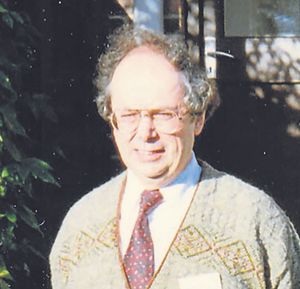Without question, television is the icon of our age. Along with the internet, it is a major driving force in our culture and a major influence in our lives.
Some years ago an industrial dispute threatened to black out the TV Christmas schedules. The dispute was rapidly settled – the idea that the nation’s TV screens could be blank during the Christmas season was intolerable.
TV has become an indispensable part of family life. Says Bart of ‘The Simpsons’ to Homer his father, ‘It’s just hard not to listen to TV; it has spent so much more time raising us than you have’. That may make us smile but there is too much truth in it for comfort.
Here is an impossible thought. Imagine life without soap operas. What? No Corrie and no Eastenders? How would the tabloids exist?
Once when the TV licensing van was doing its rounds they knocked on our door ready to charge me with not having a TV licence. They were staggered to learn that (at that time) we didn’t have a TV!
TV and education
One thing going for TV is that it can be a remarkable educational tool. Years ago TV for schools was a natural part of the curriculum. Most days in the early hours, you can tape programs from the Open University.
But apart from a few genuinely educational programs, what is TV teaching? The dominant rationale for TV, it seems to me, is one of entertainment. Thus, for example, the overwhelming philosophical approach is humanistic, trivial and exceedingly superficial.
What a contrast to the Bible that encourages us to use our minds – to reflect and consider (e.g. Isaiah 1:18; Philippians 4:8). With TV, by contrast, the very medium prevents you from thinking and reflecting.
The ‘sound bite’ so beloved of politicians, comes directly from the TV medium. ‘Bites’ give no information to educate the mind. They are designed for the senses not for the mind. The average length of a shot on national TV is 3.5 seconds – the eye never rests, it must always have something new to see.
TV is often flippant, irreverent, blasphemous and spiritually destructive. The recent Channel 4 program on ‘the New Ten Commandments’ is an example. A quote from this program sums up the attitude – ‘Right is when you do something wrong and you don’t get caught. Wrong is when you do something wrong and you do get caught’.
So is it educational? Groucho Marx thought so. He said, ‘I find television very educational. The minute somebody turns it on, I go to the library and read a book’!
But to be serious, TV is a subversive medium that has an enormous influence on the way our nation views the world. Should we then do away with it? My answer is no. But we must use it wisely.
TV as entertainment
So TV is chiefly for our amusement and pleasure. This is seen even in the nightly news. Some horrendous event is reported but the news ends with a light hearted story just to make the viewer feel better. And the adverts that interrupt even serious programs, entertain us to arouse covetousness – the desire for yet more possessions.
By watching TV we allow ourselves to be entertained by people we would not have in our home. To relax and turn on the TV without any discernment as to what is being shown makes you spiritually vulnerable to temptation.
In John Bunyan’s great book The holy war the five doors to Mansoul could only be opened from the inside. They are the five senses – eye gate, ear gate, feel gate, mouth gate and nose gate. The most vulnerable are eye gate and ear gate, the very senses to which TV appeals.
TV pundits mock the Christian’s concern. Said Clive James, ‘Anyone afraid of what he thinks television does to the world is probably just afraid of the world’. Indeed. Consider James 4:4 and 1 John 2:15ff. The world is a dangerous place.
TV is addictive
Many people turn on the TV just to kill time. But as they watch they become absorbed, they are taken up with it. Has this happened to you? Consider the appeal and fascination of the soap operas.
The latest plot makes tabloid news headlines. It has become that important. The latest story lines of Eastenders or Coronation Street become topics of conversation for countless people. Once a person is hooked, such plots become compelling and exciting.
Why is this? It is the emptiness of people’s lives that make them crave the escape and stimulation provided by the fictitious and extravagant lives of others. They live their own lives vicariously through the soap opera characters.
The soap opera is also like a mirror reflecting the loneliness of men and women in an uncaring society. The problem of loneliness, of course, is only truly answered by the Church of Jesus Christ – the community of God, where true friendships and reality are found. Understood correctly, and in contrast to the make-believe world of TV soaps, the Christian life is real life (John 10:10).
TV and the death of reading
An article by Larry Woiwode entitled ‘Television – the Cyclops that eats books’ contains the following insights (it addresses the American scene but is equally applicable to the UK). He says, ‘TV is more than a medium; it has become a full-fledged institution, backed by billions of dollars each season. Its producers want us to sit in front of its glazed-over electronic screen, press our clutch of discernment through the floorboards, and sit in a spangled, zoned-out state … while we are instructed in the proper liberal tone and attitude by our present-day Plato and Aristotle – Dan Rather and Tom Brokow.
‘These television celebrities have more temporal power than the teachings of Aristotle and Plato have built up over the centuries. Television, in fact, has greater power over the lives of most Americans than any educational system or government or church.
‘Children are particularly susceptible. They are mesmerised, hypnotised and tranquilised by TV. It is often the centre of their world; even when the set is turned off they continue to tell stories about what they’ve seen on it. No wonder, then, that as adults they are not prepared for the frontline of life; they simply have no mental defences to confront the reality of the world’.
He goes on to say, ‘One of the most disturbing truths about TV is that it eats books. Once out of school, nearly 60% of all adult Americans have never read a single book, and most of the rest read only one book a year’. Simply put, ‘TV teaches people not to read’. This is the sad reality.
What should Christians do?
There are a variety of different responses. This becomes an interesting test-case regarding liberty or legalism in our approach, both personally and in our churches.
One approach is this – Get rid of the TV. Throw it out. Never watch it and condemn those who do. Make them feel guilty if they own a TV and worse still if they watch it. I have a problem with handling the matter like this. It is a matter of Christian liberty (1 Corinthians 8-9; Romans 14).
A better approach is this – Use your discretion. Some programs are good and wholesome, so use a guide like the Radio Times to find them! But indiscriminate TV watching may open the door to real damage to you and your family.
Documentaries, the occasional film, and a few other programs are worth watching. But even then, do be careful – you will be influenced. For example, the TV series Planet Earth was wonderful but was ruined by the evolutionary bias of the presenter, David Attenborough.
His viewpoint in this brilliant natural history program (and others) derives from an atheistic philosophical basis – he said recently, ‘during all my life as I have seen nature first hand I have never seen a touch of the divine’. How very sad.
No answer to emptiness
As you read this article you will know someone who is not a Christian. Their emptiness will not be remedied by watching TV. The remedy comes only through trusting alone in the Lord Jesus Christ, but TV programs that deal with the Christian faith are invariably prejudiced and distorted.
The message that brings hope, meaning and inner satisfaction will not come through watching a TV program but only through a living encounter with Jesus in the gospel – as revealed in the Bible. Salvation and true life are found in him alone.
Discreet TV viewing provides a window on the world we have to reach, an unveiling of the human condition. If you happen on one of the populist programs that form the diet of so many, think with concern and compassion about those who watch so avidly.
Ask yourself, ‘How may I reach this section of the community with the gospel of grace?’ The need is for believers to be wisely aware and to cry to God for our poor, impoverished nation.
TV and the Christian
Join the discussion
Read community guidelinesExplore topics












